Nationwide genomic biosurveillance The routine genomic biosurveillance for SARS-CoV-2 in the Philippines through the Philippine Genome Center (PGC), in coordination with the Department of Health (DOH) – Epidemiology Bureau and the Inter-Agency Task Force (IATF) Task Force on COVID-19 Variants began during the last week of December 2020 with the confirmation of VoC (Variant of […]
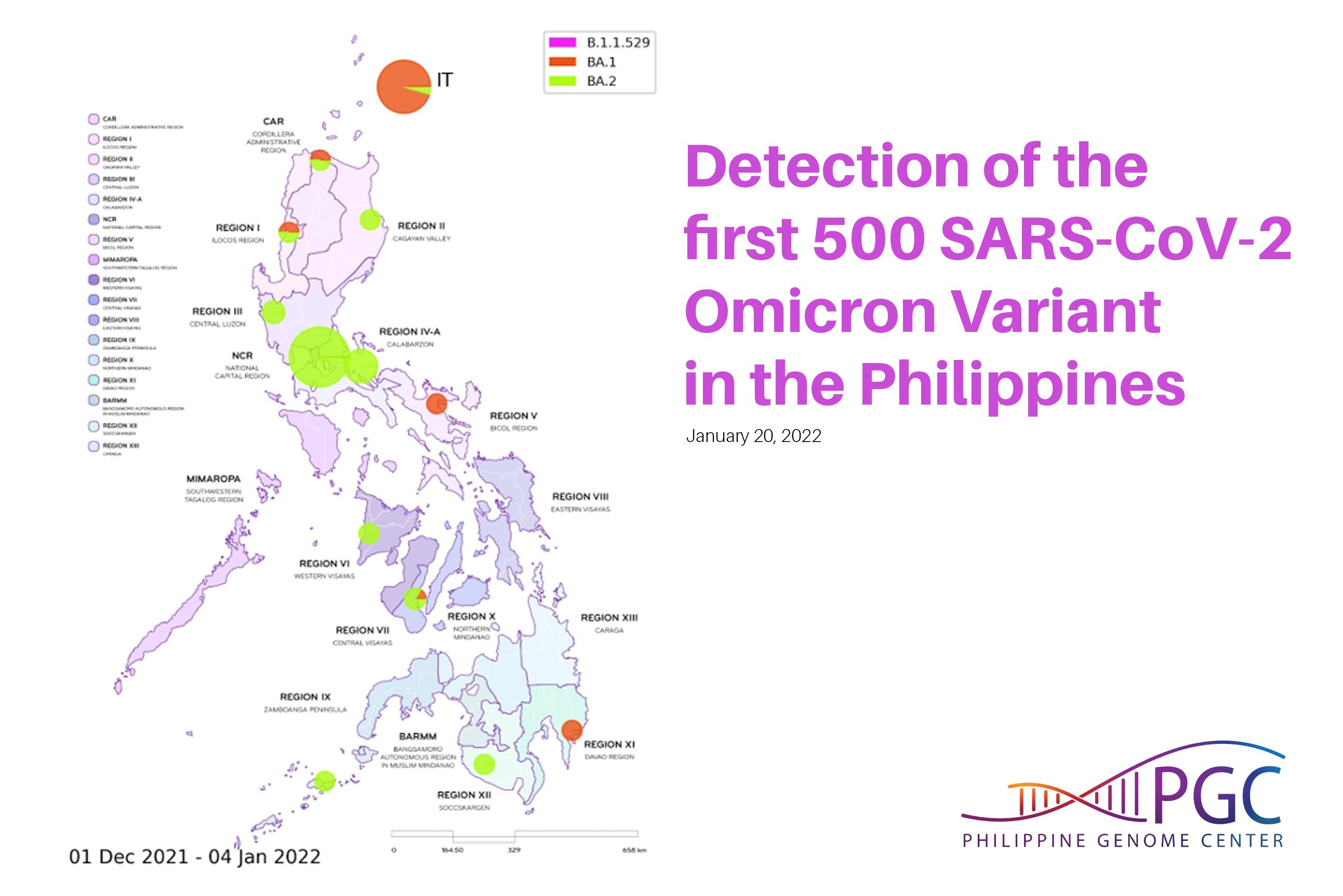
PGC SARS-CoV-2 Bulletin No. 8: Detection of the first 500 SARS-CoV-2 Omicron Variant in the Philippines
This variant, with its more than 30 mutations in the Spike region is hypothesized to be over twice as infectious and twice more likely to escape current vaccines than the Delta variant. Currently, Omicron consists of four (4) phylogenetic lineages: the main lineage B.1.1.529 and its three (3) sublineages: BA.1, BA.2, and BA.3. Based on global statistics, BA.1 is the predominant Omicron lineage being detected worldwide, but a recent increase in the proportion of BA.2 cases has also been observed.
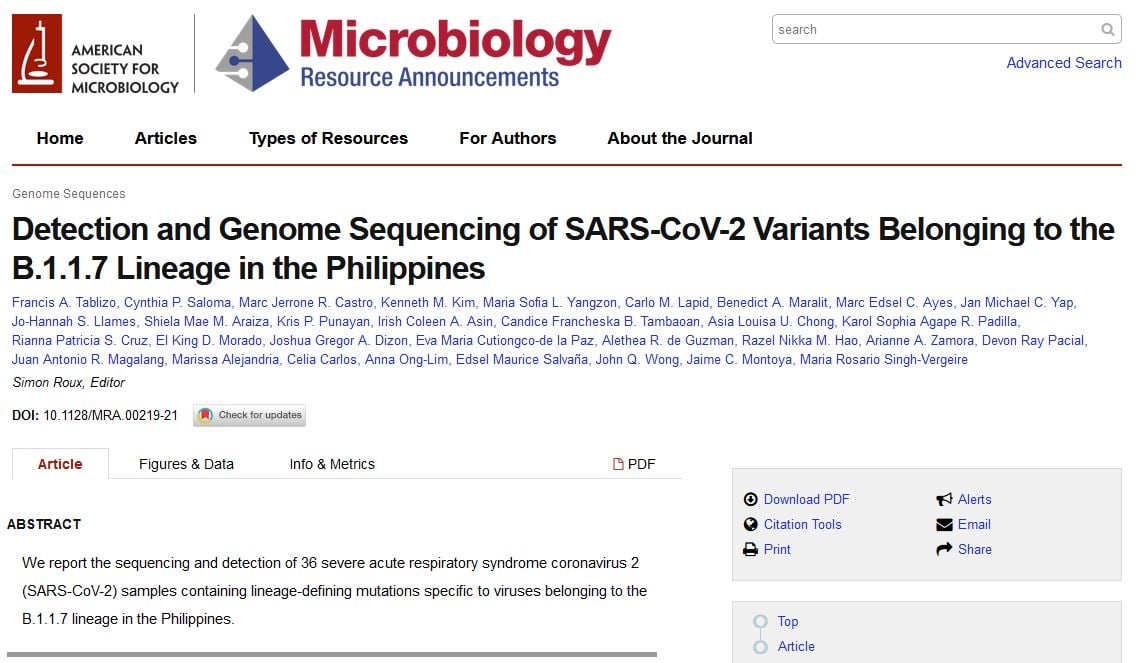
Detection and Genome Sequencing of SARS-CoV-2 Variants Belonging to the B.1.1.7 Lineage in the Philippines
Coronavirus disease 2019 (COVID-19) is an infectious disease that has gained pandemic status from the World Health Organization, with millions of cases and deaths recorded worldwide. This global health crisis is caused by the virus referred to as severe acute respiratory syndrome coronavirus 2 (SARS-CoV-2), a member of the genus Betacoronavirus (Coronaviridae), together with the causative agents of the first SARS outbreak in 2003 and the Middle East respiratory syndrome (MERS) in 2012.
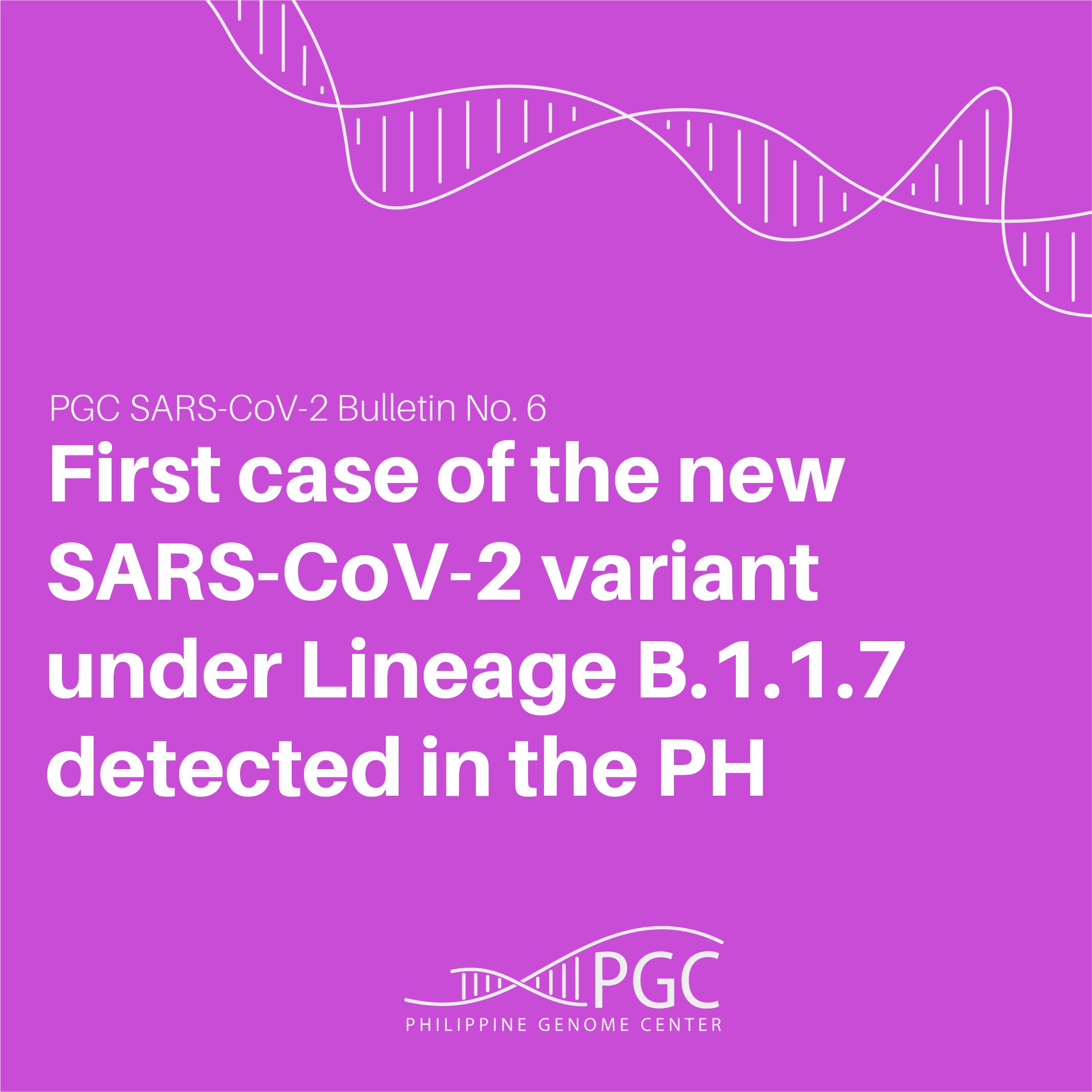
PGC SARS-CoV-2 Bulletin No. 6: First case of the new variant under Lineage B.1.1.7 detected in the Philippines
Through the biosurveillance efforts of the UP – Philippine Genome Center (PGC), in coordination with the Department of Health (DOH) – Epidemiology Bureau and the Inter-Agency Task Force (IATF) Task Force on COVID-19 Variants, we report the first confirmed case of the SARS-CoV-2 B.1.1.7 lineage, more commonly known as the UK variant, in the Philippines. An announcement of this finding can be found in an official DOH press release dated January 13, 2021.
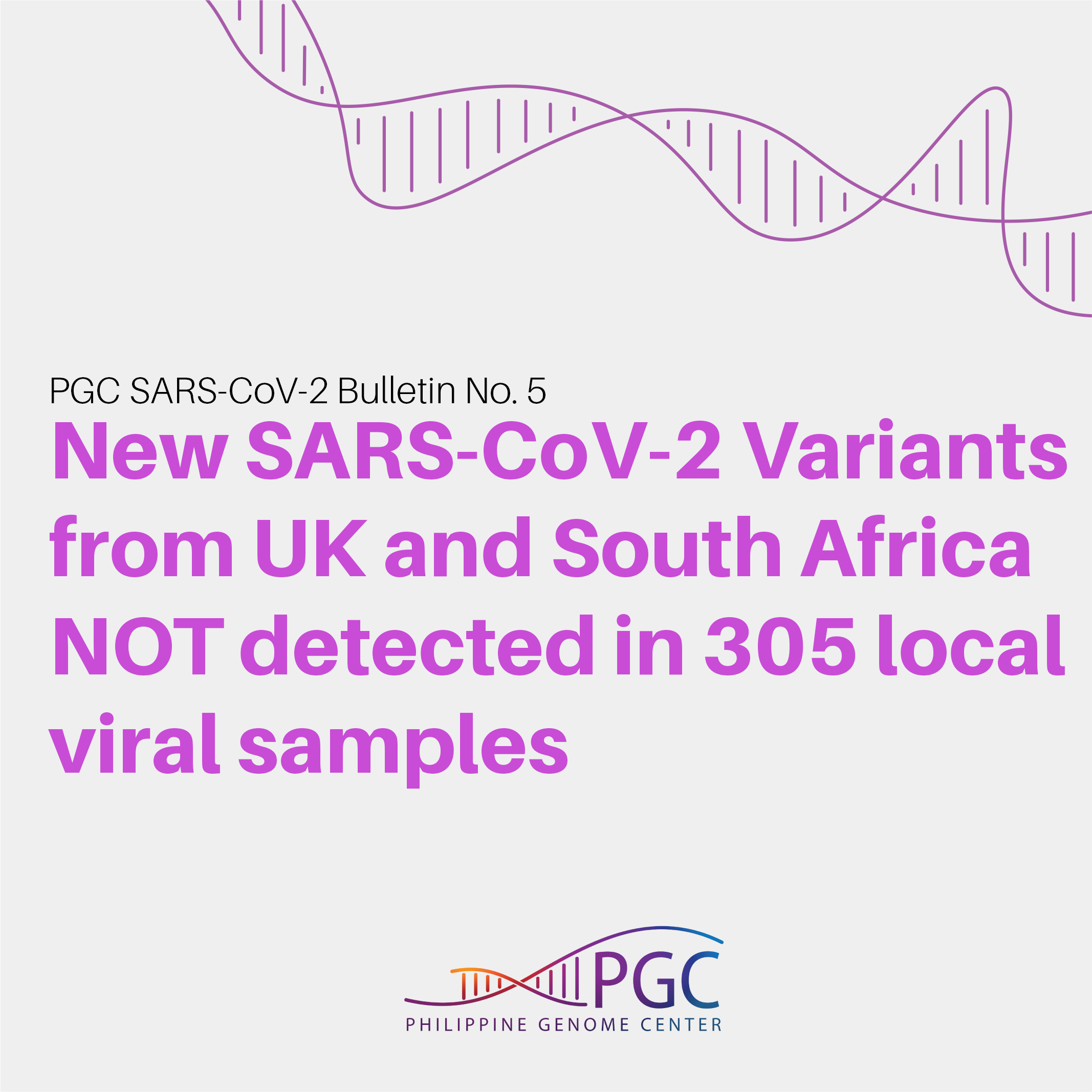
PGC SARS-CoV-2 Bulletin No. 5: New Variants from UK and South Africa NOT detected in 305 local viral samples
Recently, new SARS-CoV-2 variants were detected in the United Kingdom and South Africa with multiple spike protein mutations that may cause substantial changes in certain properties of the virus. These observations spurred biosurveillance efforts in different countries, with some countries outside of the UK and South Africa already reporting the presence of these new variants within their territories. The data presented in this report is part of our own continuing biosurveillance efforts to track the entry of these new variants in the country, as well as other viral mutations that may be of concern locally.
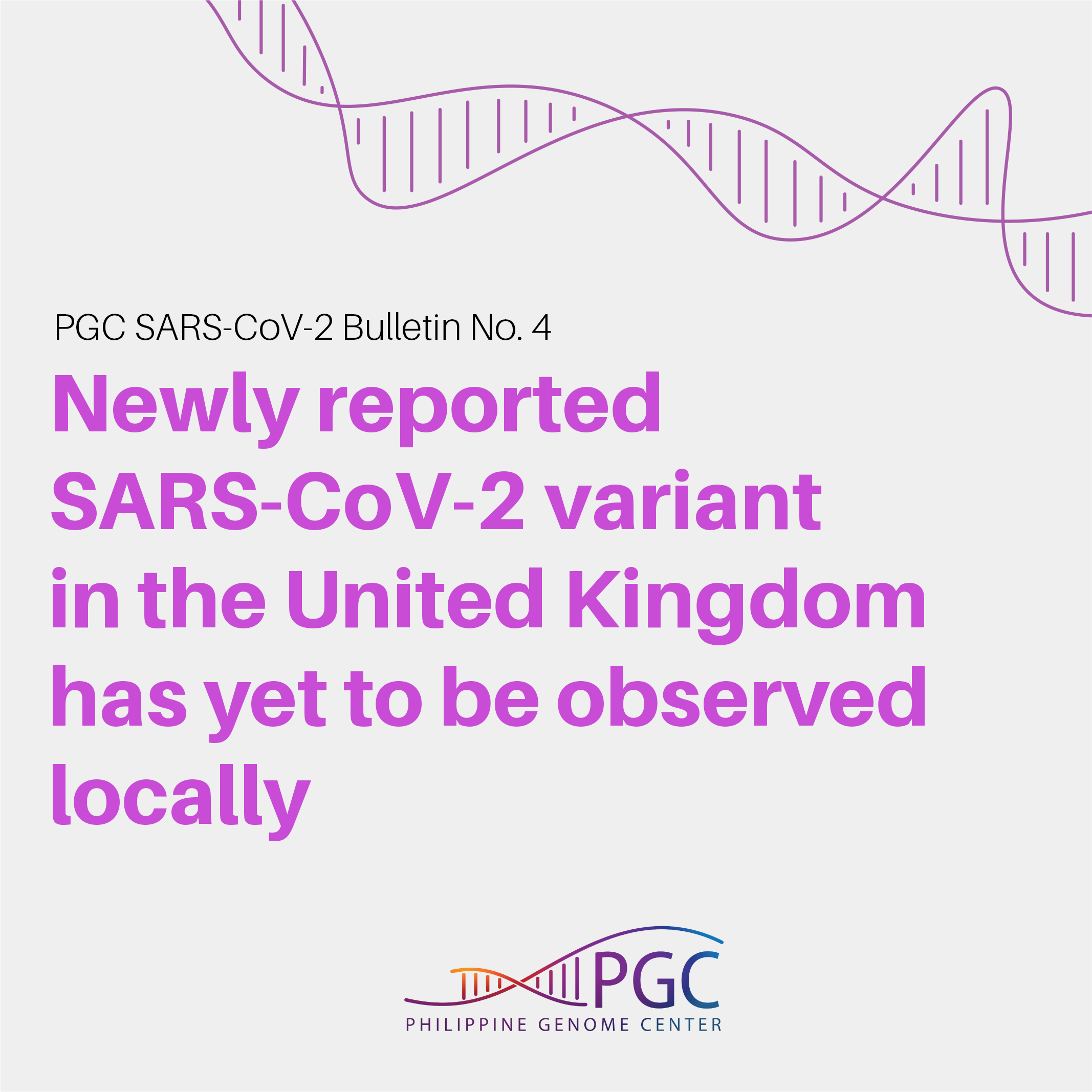
PGC SARS-CoV-2 Bulletin No. 4: Newly reported variant in the United Kingdom has yet to be observed locally
In a report posted at the Global Initiative for Sharing All Influenza Data (GISAID) website, the UK variant is said to harbor multiple spike protein mutations within a single sample, including a combination of the following: H69del, V70del(69), Y145del(143), N501Y, A570D, D614G, P681H(674), T716I, S982A, and D1118H (GISAID, 2020). While the discovery of this new UK variant appears to be concerning, the report cautions that the detailed effects of these mutations remain to be fully determined.
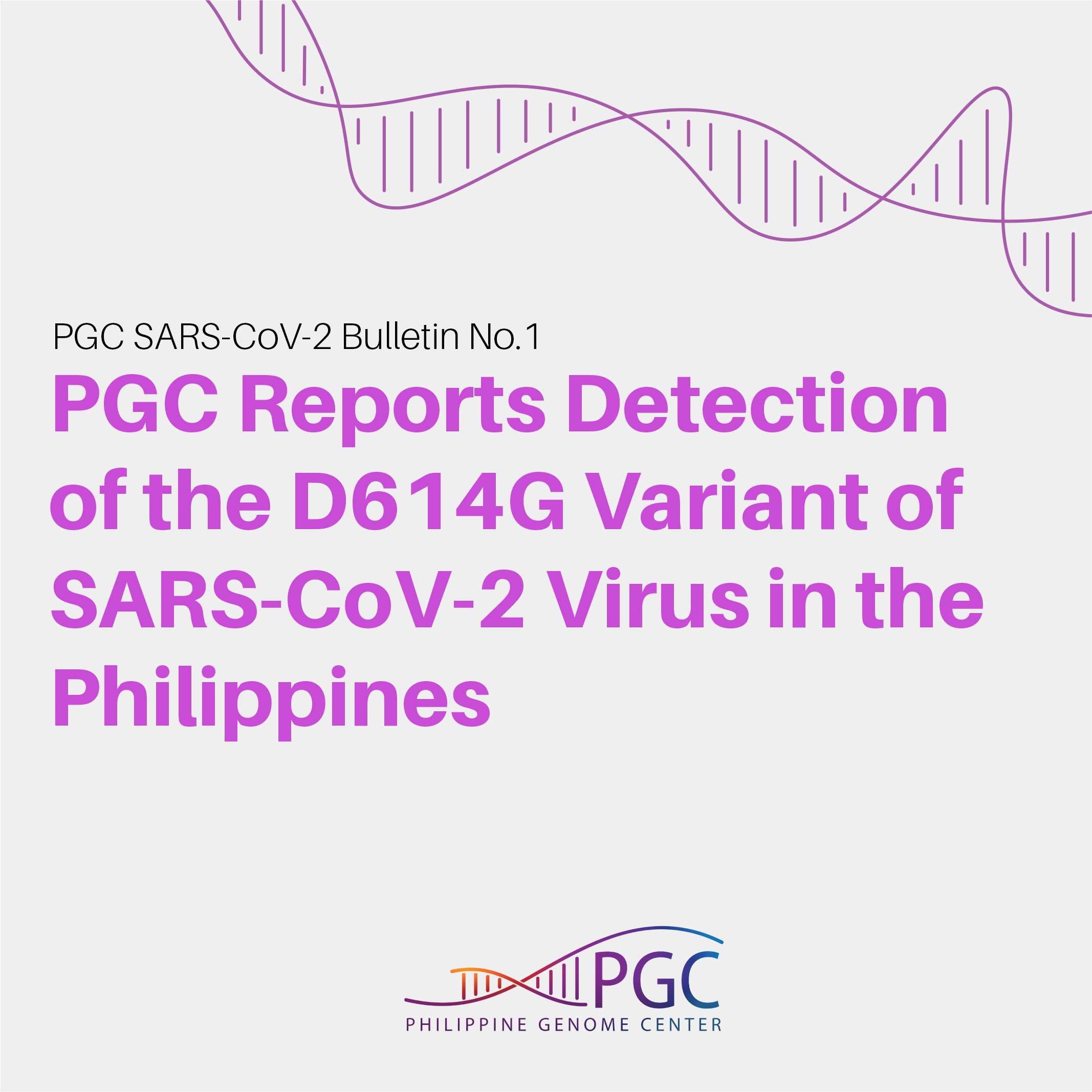
PGC SARS-CoV-2 Bulletin No.1: Philippine Genome Center Reports Detection of the D614G Variant of SARS-CoV-2 Virus in the Philippines
COVID-19 or the Coronavirus Disease 2019 is caused by SARS-CoV-2 virus, the genome of which is a single-stranded positive sense RNA that is about 30,000 bases long. It contains 11 genes and several regions have been known to be immunogenic, including different parts of the Spike (S) protein, the Nucleocapsid (N) protein, as well as the Membrane (M) and Envelope (E) proteins, which have therefore been targeted for vaccine development.
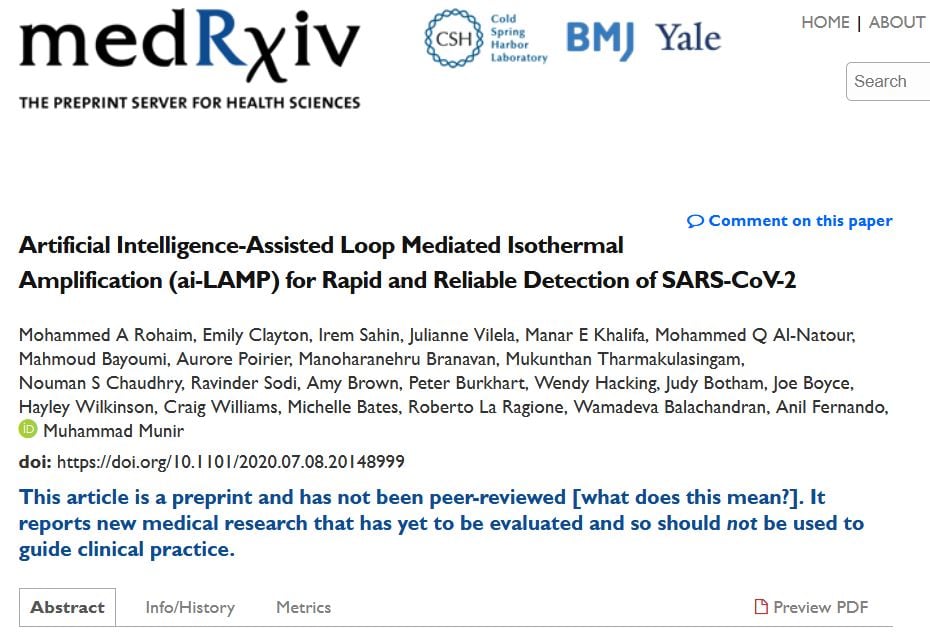
Artificial Intelligence-Assisted Loop Mediated Isothermal Amplification (ai-LAMP) for Rapid and Reliable Detection of SARS-CoV-2
Until vaccines and effective therapeutics become available, the practical way to transit safely out of the current lockdown may include the implementation of an effective testing, tracing and tracking system. However, this requires a reliable and clinically validated diagnostic platform for the sensitive and specific identification of SARS-CoV-2.
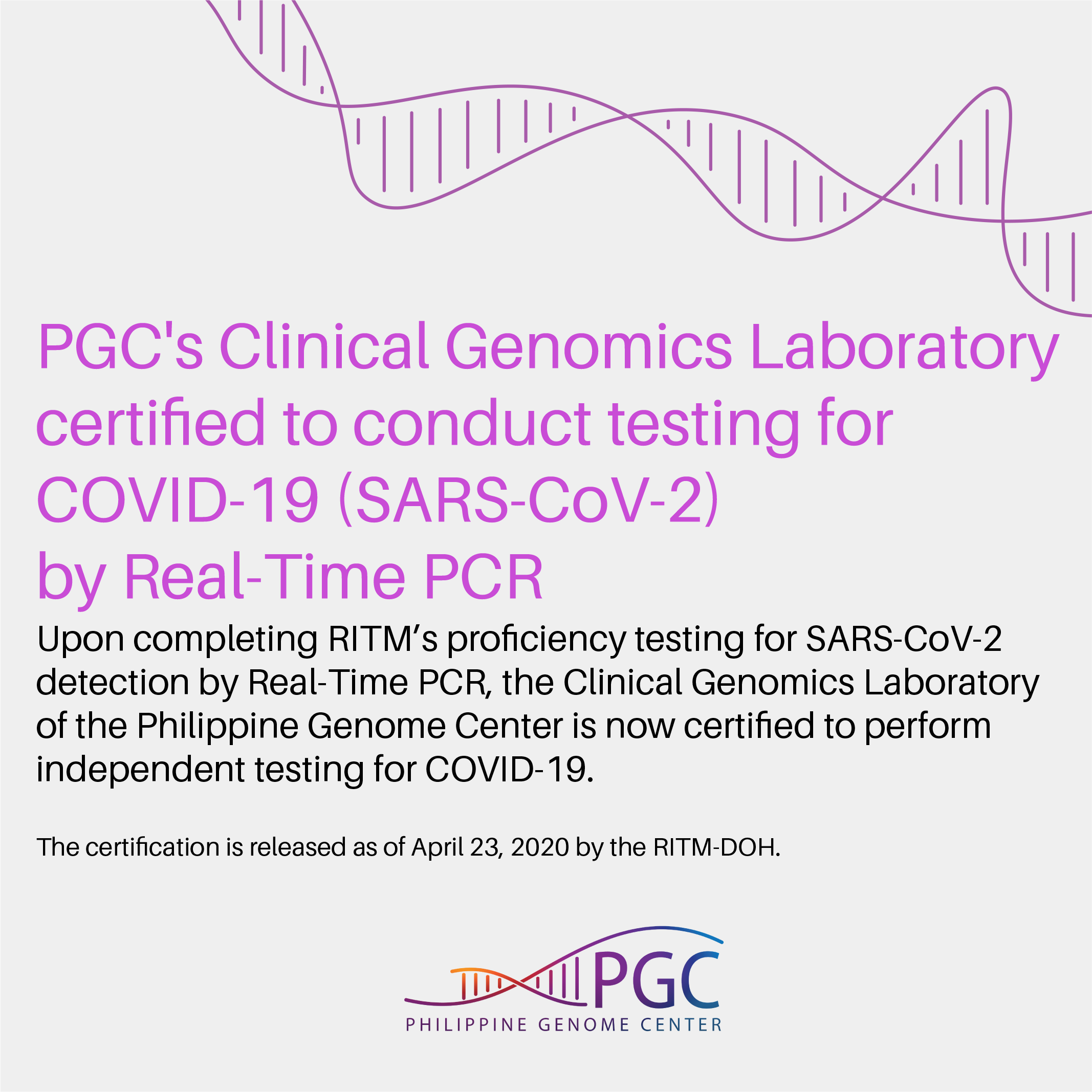
PGC’s Clinical Genomics Laboratory certified to conduct testing for COVID-19 (SARS-CoV-2) by Real-Time PCR
Upon completing and passing the Research Institute for Tropical Medicine’s (RITM) proficiency testing for SARS-CoV-2 detection by Real-Time PCR, the Clinical Genomics Laboratory (CGL) of the Philippine Genome Center is now certified to perform independent testing for COVID-19. The certification is released as of April 23, 2020 by the RITM-DOH.

